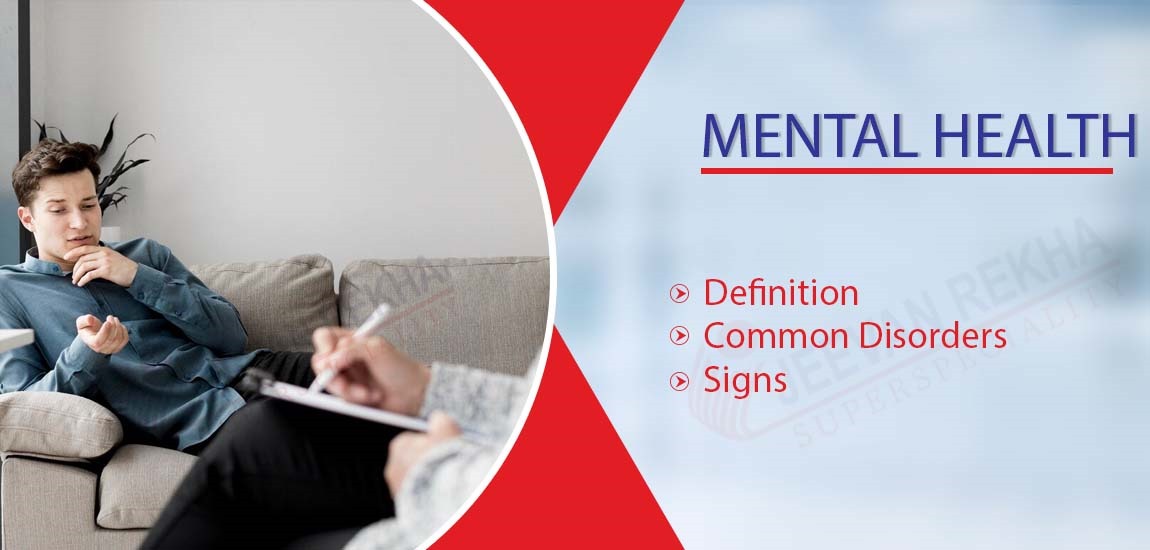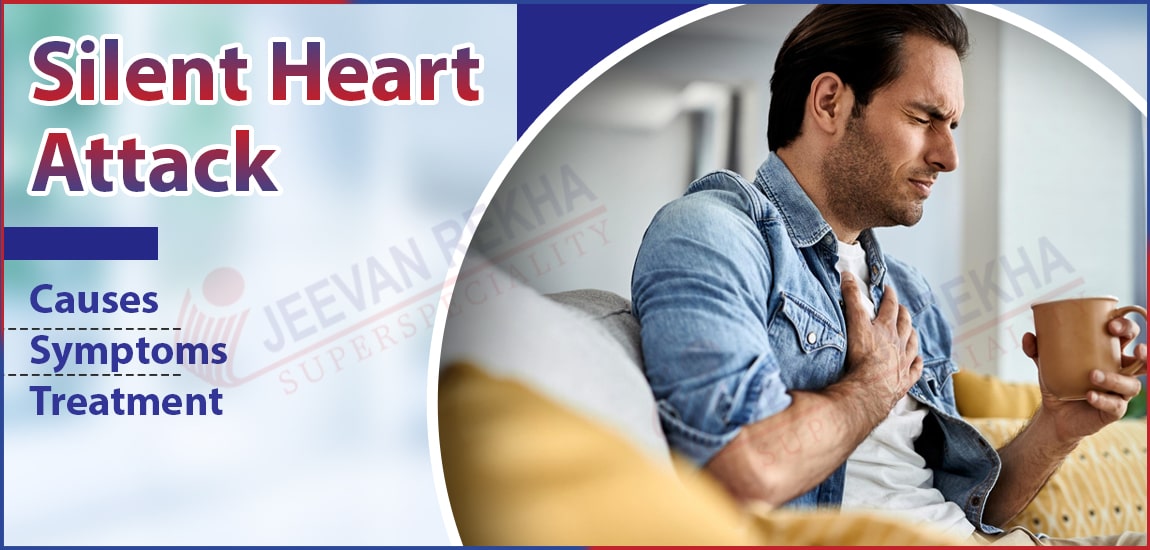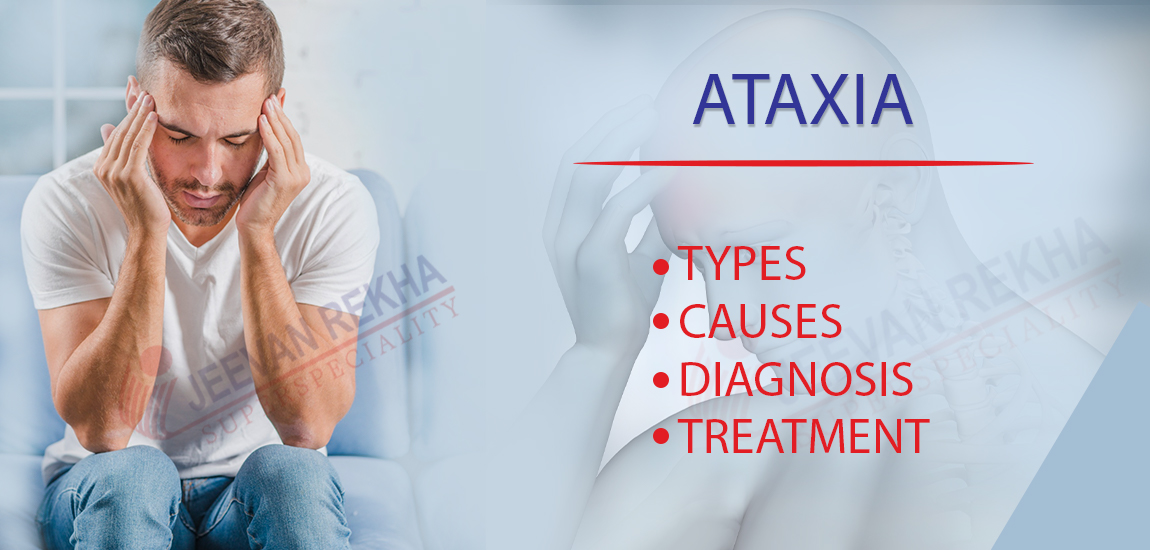
- By Admin
- In Health and Tips,
- Posted May 15, 2024
Mental Health: Definition, Common Disorders, and Signs
What is Mental Health
Mental health encompasses an individual's emotional, psychological, and social welfare, shaping their cognition, emotions, and behaviors. It's a fundamental aspect of overall health, essential for coping with life's challenges, building resilience, and forming meaningful relationships.
Good mental health enables individuals to realize their full potential, handle stress effectively, and contribute to their communities. Conversely, poor mental health can lead to various disorders such as depression, anxiety, or schizophrenia, affecting thoughts, behaviors, and emotions.
Factors like genetics, brain chemistry, life experiences, and environment all play roles in mental health. Recognizing the importance of mental health, efforts to raise awareness, reduce stigma, and improve access to mental health care have gained prominence in recent years. Taking care of mental health is as vital as physical health, fostering a balanced and fulfilling life.
What are Mental Disorders
Mental disorders, also known as psychiatric disorders or mental illnesses, are conditions that affect a person's thinking, feeling, mood, behavior, or perception.
These disorders can disrupt daily functioning and impair one's ability to cope with life's demands. Mental disorders can vary widely in their severity, duration, and impact on individuals. They can arise from a combination of genetic, biological, environmental, and psychological factors.
Types of Mental Disorders
Mental disorders encompass a wide range of conditions, each with its own distinct symptoms, causes, and treatments. Here's an overview of some common types of mental disorders:
- Depressive Disorders: Depressive disorders comprise major depressive disorder, persistent depressive disorder (dysthymia), and seasonal affective disorder (SAD), characterized by enduring sadness, diminished interest in activities, changes in sleep or appetite, and feelings of worthlessness or guilt.vities, changes in appetite or sleep patterns, and feelings of worthlessness or guilt.
- Anxiety Disorders: Anxiety disorders include generalized anxiety disorder (GAD), panic disorder, social anxiety disorder, and specific phobias, marked by excessive worry, fear, or nervousness that disrupt daily functioning.
- Bipolar Disorders: Bipolar disorders encompass bipolar I disorder, bipolar II disorder, and cyclothymic disorder, featuring alternating episodes of depression and mania, ranging from mild to severe shifts in mood.
- Schizophrenia Spectrum Disorders: Characterized by disturbances in thinking, perception, emotions, and behavior. Symptoms may encompass hallucinations, delusions, disorganized thinking, and compromised social functioning.
- Obsessive-Compulsive and Related Disorders: Such as obsessive-compulsive disorder (OCD), body dysmorphic disorder, and hoarding disorder. These disorders involve intrusive thoughts (obsessions) and repetitive behaviors (compulsions) that are difficult to control.
- Trauma- and Stressor-Related Disorders: Including post-traumatic stress disorder (PTSD), acute stress disorder, and adjustment disorders. These disorders develop in response to traumatic or stressful events and involve symptoms such as flashbacks, nightmares, and avoidance behavior.
- Eating Disorders: Such as anorexia nervosa, bulimia nervosa, and binge-eating disorder. These disorders involve abnormal eating behaviors, distorted body image, and significant distress related to food and weight.
- Substance-Related and Addictive Disorders: Including substance use disorders (e.g., alcoholism, drug addiction) and gambling disorder. These disorders involve compulsive behaviors related to substance abuse or addictive behaviors.
- Personality disorders, like borderline personality disorder, narcissistic personality disorder, and antisocial personality disorder, are characterized by persistent patterns of thoughts, emotions, and behaviors that diverge from societal norms, leading to notable impairment.
- Neurodevelopmental disorders, such as attention-deficit/hyperactivity disorder (ADHD), autism spectrum disorder (ASD), and intellectual disability, typically manifest during childhood and entail delays or deficits in cognitive, social, or behavioral development.
Risk Factors Included with Mental Health Disorders
Risk factors associated with mental health disorders can vary depending on the specific disorder and individual circumstances. However, some common risk factors include:
- Genetics and Family History: A family history of mental illness can increase the risk of developing similar disorders.
- Brain Chemistry and Biology: Imbalances in neurotransmitters or abnormalities in brain structure and function can contribute to the development of mental disorders.
- Traumatic Life Experiences: Exposure to trauma, abuse, neglect, or significant life stressors can increase vulnerability to mental health problems.
- Chronic Medical Conditions: Certain medical conditions or chronic illnesses can be associated with increased risk of mental health disorders.
- Substance Abuse: Misuse or addiction to alcohol, drugs, or other substances can exacerbate or contribute to the development of mental health disorders.
- Environmental Factors: Factors such as poverty, homelessness, discrimination, and social isolation can impact mental health.
- Childhood Experiences: Adverse experiences during childhood, such as loss of a parent, bullying, or family conflict, can influence mental health outcomes later in life.
- Personality Traits: Certain personality traits or temperament characteristics may predispose individuals to specific mental health disorders.
- Stressful Life Events: Major life changes, such as divorce, job loss, or bereavement, can trigger or exacerbate mental health symptoms.
- Lack of Social Support: Limited social support networks or feelings of loneliness and isolation can contribute to poor mental health outcomes.
Signs of Mental Disorders
Signs of mental disorders can vary depending on the specific disorder and individual circumstances. Some common signs include:
- Changes in Mood: Persistent sadness, irritability, anxiety, or mood swings that interfere with daily functioning.
- Changes in Behavior: Withdrawal from social activities, changes in eating or sleeping habits, or engaging in risky behaviors.
- Physical Symptoms: Unexplained aches and pains, fatigue, or changes in appetite or weight.
- Distorted Thinking: Disorganized thoughts, difficulty processing information, or experiencing hallucinations or delusions.
- Impaired Functioning: Difficulty coping with daily tasks, work, school, or relationships.
- Increased Substance Use: Escalating use of alcohol, drugs, or other substances to cope with emotions or symptoms.
- Excessive Worry or Fear: Persistent worry, fear, or anxiety that is disproportionate to the situation.
Also read: Headache: What It Is, Types, Causes, Symptoms & Treatment
Diagnosis of Mental Disorders
The diagnosis of mental disorders involves a thorough assessment by a qualified mental health professional, such as a psychiatrist, psychologist, or licensed therapist. This process typically includes:
- Clinical Interview: Gathering information about symptoms, medical history, family history, and any relevant psychosocial factors.
- Psychological Testing: Administering standardized tests or assessments to evaluate cognitive functioning, personality traits, and symptom severity.
- Physical Examination: Rule out any underlying medical conditions or medication side effects that may be contributing to symptoms.
- Diagnostic Criteria: Assessing symptoms against established diagnostic criteria outlined in classification systems like the DSM-5 (Diagnostic and Statistical Manual of Mental Disorders) or ICD-10 (International Classification of Diseases).
- Collateral Information: Gathering information from family members, caregivers, or other sources to provide additional context and insight into the individual's functioning.
- Duration and Severity: Evaluating the duration, intensity, and impact of symptoms on the individual's daily life and functioning.
- Differential Diagnosis: Distinguishing between different mental disorders or determining if symptoms are better explained by another medical or psychological condition.
- Cultural Considerations: Considering cultural factors that may influence the expression of symptoms and perceptions of mental health.
Treatment of Mental Health Disorders
The treatment of mental health disorders typically involves a combination of approaches tailored to the individual's specific needs and preferences. Some common treatment options include:
- Psychotherapy: Also known as talk therapy, psychotherapy involves working with a trained therapist to explore thoughts, emotions, and behaviors, and develop coping strategies. Different types of therapy, such as cognitive-behavioral therapy (CBT), dialectical behavior therapy (DBT), and interpersonal therapy (IPT), may be used depending on the nature of the disorder.
- Medication: Psychiatric medications, such as antidepressants, antipsychotics, mood stabilizers, and anti-anxiety medications, may be prescribed to help alleviate symptoms and stabilize mood. Medication management typically involves close monitoring by a psychiatrist to assess effectiveness and manage any potential side effects.
- Lifestyle Changes: Engaging in regular exercise, maintaining a healthy diet, getting adequate sleep, and practicing stress-reduction techniques such as mindfulness or relaxation exercises can support overall mental well-being
- Supportive Services: Peer support groups, support networks, and community resources can provide encouragement, validation, and practical assistance to individuals living with mental health disorders.
- Hospitalization: In cases of severe symptoms or acute crisis, short-term hospitalization in a psychiatric facility may be necessary to ensure safety and stabilize the individual's condition.
- Day Programs or Partial Hospitalization: Intensive outpatient programs or day treatment programs offer structured therapeutic activities and support while allowing individuals to return home at night.
- Electroconvulsive Therapy (ECT) or Transcranial Magnetic Stimulation (TMS): These treatment options may be considered for individuals with treatment-resistant depression or other severe mental health conditions.
- Peer Support and Self-Help Strategies: Participating in peer-led support groups, online forums, or self-help resources can provide additional support and encouragement in managing mental health challenges.
Conclusion
At Jeevan Rekha Hospital, we prioritize the holistic well-being of our patients, recognizing the importance of mental health in overall health and quality of life. Our comprehensive approach to mental health care encompasses assessment, diagnosis, and personalized treatment plans tailored to each individual's unique needs. Through a combination of psychotherapy, medication management, lifestyle interventions, and support services, we strive to empower our patients on their journey toward recovery and resilience.
We are committed to providing compassionate, evidence-based care that promotes healing and fosters hope. By partnering with our patients, their families, and the community, we work collaboratively to address mental health challenges and promote long-term wellness. At Jeevan Rekha Hospital, we believe that everyone deserves access to high-quality mental health care, and we are dedicated to making a positive difference in the lives of those we serve.
Tags
Blog Search
Latest Posts
-
Dark Circles Under The Eyes: Causes, Home Remedies and Treatments
December 21, 2025 -
बर्ड फ्लू के लक्षण, कारण, उपचार और बचाव के उपाय जानें
December 04, 2025 -
Best Diet Plan for Menopause Weight Management
November 25, 2025 -
Pulmonary Fibrosis Treatment: Understanding Lung Scarring and Breathing Problems
November 21, 2025 -
Arrhythmia: Types, Causes, Symptoms, and Treatment
November 07, 2025




